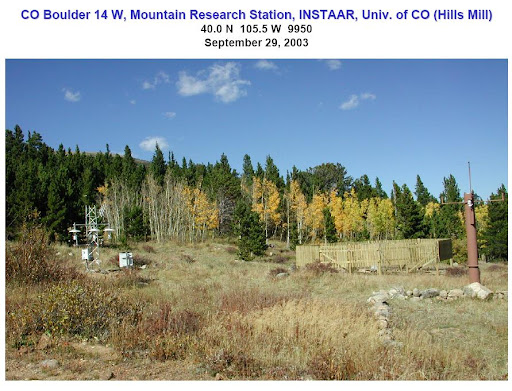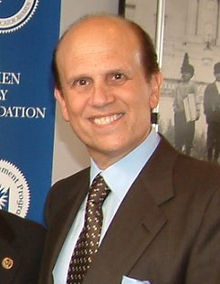 The hundred year wingnuts have emerged to devour the centenary of Rachel Carsons
The hundred year wingnuts have emerged to devour the centenary of Rachel Carsons death birth (tip of the ears to Steve Bloom. You can read about the various abuses over at Deltoid, Deltoid, Deltoid, but that being an Aussie blog, Eli will point to the local inaction:
The U.S. Senate adjourned for the Memorial Day weekend yesterday without taking up a resolution honoring environmental author Rachel Carson, meaning that the measure will not be passed in time for the 100th anniversary of her birth, congressional staff members said. . .
But plans were stymied when Sen. Tom Coburn (R-Okla.) used Senate rules to block the measure. Coburn said Carson's "junk science" improperly stigmatized the pesticide DDT and prevented it from being used on malaria-carrying mosquitoes. As a result, Coburn said, numerous people in the developing world have died of the disease.
Susan Sullam, a spokeswoman for Cardin, said yesterday that she was unsure whether he would continue to press for the resolution's passage.
Those who wish to honor Carson, might write to
Senator Cardin. OTOH, they might also write to
Sen. Coburn. Of course, this being Washington DC, we have our local infestations, one of which emerged from larval form onto the Washington Post letter page, a
Roger Bate of the American Enterprise Institute who said (in part)
David A. Fahrenthold quoted me in his May 23 Metro article "Rachel Carson Bill From Cardin on Hold" but misunderstood my point. While one cannot blame Rachel Carson for things done in her name after her death, she was undoubtedly wrong about DDT and a host of other issues. She was known to be wrong in 1972, 10 years after "Silent Spring" was published, as the back cover of the 1972 Penguin version acknowledged.
Bate being one of the fabricators of the
Carson as a killer myth as well as the type of all around scum who tried to make a living by
shilling for tobacco. Sourcewatch thinks Philip Morris turned down the
book proposal. Well Philip may have had better taste and told Bates to walk the streets for free, but Sadly No, the
Tobacco Institute funded the book, "What Risk".
The proposal is worth reading, if only for the budget (£50K of which £5K was to go to distributing the book to thems what counts - sadly, thems what counts ususally can't and their reading skills are none too good) and the proposed list of authors, among which we find such familiar luminaries
Zbigniew Jaworowski and Princess Denial,
Sonja Boehmer-Christiansen . Ziggie made it into the book, providing a chapter on how radon is good for the health, but as interestingly, the proposal had one Julian Morris as co-editor.
George Monbiot recounts how Morris told him he had and wanted nothing to do with the book
Julian Morris insists that his name was added to the document without his consent. He says he had “nothing” to do with the book(9). It was published in 1997 under the title “What Risk?”(10). It has a foreword by David Davis MP. It claims that passive smoking is no more dangerous than “eating 50g of mushrooms a week” and attacks “politically correct” beliefs such as “passive smoking causes lung cancer” and “mankind’s emissions of carbon dioxide will result in runaway global warming.” Julian Morris is not named as its co-editor, but he is the first person thanked in the acknowledgements, for his “editorial suggestions”.
Monbiot goes on to talk about the players
The book’s editor, Roger Bate, is currently a fellow at the American Enterprise Institute – which has received $1.6m from ExxonMobil(11) – and the Competitive Enterprise Institute, which has received $2 million(12). Until 2003, he was Julian Morris’s predecessor as head of the IPN (International Policy Network). When the book was written, he ran the European Science and Environment Forum (ESEF), which published “What Risk?”. The registered owner of ESEF’s website is Julian Morris(13). He claims he had nothing to do with ESEF either, and registered the name purely “as a favour to a friend”(14).
and their teams
PRWatch alleges that ESEF was originally called Scientists for Sound Public Policy (SSPP), and was founded by a public relations agency working for the tobacco company Philip Morris(15). Documents in the tobacco archives show that SSPP was the subject of a fierce turf war between the PR firms Burson Marsteller and APCO, who were vying for Philip Morris’s account. Burson Marsteller’s proposal argued that “industrial resistance” to regulation is “perceived as protection of commercial self-interests”. A different “countervailing voice” was required, consisting of “international opinion formers supported financially by the industry”. Their role would be “educating opinion leaders, politicians and the media.”(16) The group would also seek funding from other industries. Some of the people ESEF recruited as “academic members” were people working for US lobby groups later funded by Exxon, who have made false claims about climate change(17).
but how, young innocent bunnies, you ask, does this have anything to
do with Rachel Carson. Ah, you have to remember that in the late 1990s,
the World Health Organization was organizing a global response to the
plague of deaths due to tobacco. Eli reading in the Tobacco Archives
comes across this interesting
dot connector from the good Roger Bate to David Greenberg of Philip Morris
It
was a pleasure to meet with you last week . Following our discussion I
have done as you suggested and thought about topics and areas of
interest where I can possibly either do some work for you, or you may
interested in supporting our work .
As outlined in more detail in
my previous correspondence, the antimalaria project is one that I hope
you will be able to support . Other than its humanitarian, scientific
and public policy interest it should enable me to build contacts with
politicians and scientist/thinkers from developing African countries .
As demonstrated in the debate and policy shift on ivory trading, these
representatives are particularly important in the UN/WHO process . I
would be happy to regularly inform you of the progress on this front .
It
will also afford me, and several colleagues, the opportunity of writing
opinion articles and books (see Public Health book outline from
previous correspondence) about the disparity between the current and
correct roles of environmental public health . Usual first world
targets, such as FT, WSJ, etc . will be complemented with other less
known but important African papers.
If you are able to donate
to the Malaria campaign, I will pass on the coordinates for the new
operation, initially based in UK, but soon to have offices in South
Africa.
In addition to this support, I would like to propose that
I work on projects for you on an ad hoc basis . In your work,
influencing the WHO on their tobacco protocol, there are probably
several areas where I can help . For example, contacts who may be
appreciative of your efforts and arguments may develop via the malaria work and I could probably act as a liaison between you and them.
I
can also write short reports on subjects salient to your interest in
the protocol. The first that could be attempted is a brief history of
the Montreal Protocol and its relevance to the proposed tobacco protocol
. I'm sure other topics will spring to mind that I can work on but let
me know if, in principle, you are interested in this approach and in
particular the Montreal Protocol paper to start with . Its probably
three to five days work.
As you probably know I was working for
PMCS Brussels at a rate of 800 pounds sterling a day . I would be
content to continue to work at the same rate.
Nice of him








